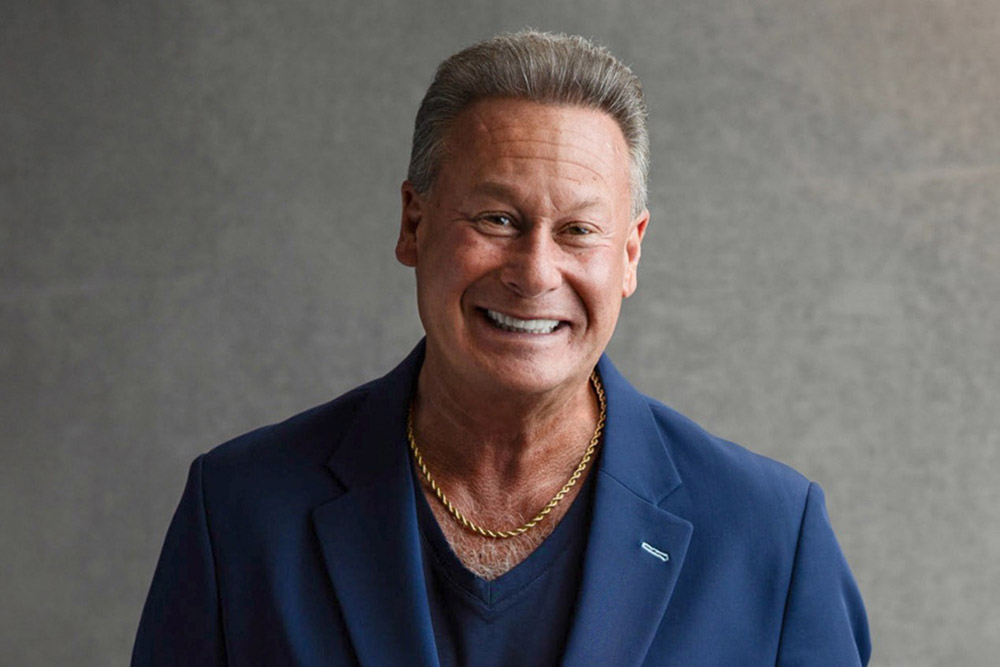
? 這位白手起家的首席執(zhí)行官與Z世代一樣,,對(duì)顯化成功的力量深信不疑,,但他堅(jiān)稱僅靠想象遠(yuǎn)遠(yuǎn)不夠,必須輔以堅(jiān)定不移的投入與每日的自我問責(zé),。因此,,他每天晚上都會(huì)問自己一個(gè)簡(jiǎn)單而深刻的問題。
你睡前會(huì)問自己什么問題,?有人會(huì)回顧讓自己感恩的事情,;有人會(huì)焦慮地復(fù)盤永無(wú)止境的待辦清單。而貝爾福(Belfor)首席執(zhí)行官謝爾頓·耶倫則會(huì)給當(dāng)日的工作效率打分,,并建議初入職場(chǎng)的Z世代每天都這樣做,。
作為年?duì)I收30億美元的災(zāi)后復(fù)原公司的首席執(zhí)行官,,耶倫向《財(cái)富》雜志揭秘了他每天保持高效的習(xí)慣,。他表示:“每晚洗漱時(shí),我都會(huì)凝視鏡中的自己——是真的盯著鏡子里的我——回答同一個(gè)問題,?!?/p>
“這個(gè)問題看似簡(jiǎn)單卻難以回答,那就是:今天你的效率如何,?我每晚都會(huì)捫心自問,,并盡可能誠(chéng)實(shí)地作答?!?/p>
耶倫會(huì)給自己打分(1%代表最差),,他坦言若得到低分就會(huì)難以入眠。這位白手起家的億萬(wàn)富翁補(bǔ)充道:“我會(huì)立刻開始工作,?!?/p>
“在指導(dǎo)年輕人的時(shí)候,我會(huì)告訴他們:‘每天都是你的主場(chǎng),,你要把握好每天的時(shí)光,。但到了晚上,你要對(duì)著鏡子里的自己思考一個(gè)問題:你到底充分利用了多少時(shí)間,?你的效率達(dá)到了65%,?72%?還是81%?”
成功掌控在自己手中
當(dāng)然,,這種深夜自省很容易敷衍了事,,畢竟這不是真實(shí)的考試,而且分?jǐn)?shù)由你自己評(píng)定,。但它卻能提醒你,,成功掌控在自己手中。
耶倫就是一個(gè)絕佳例證:出身貧寒的耶倫11歲開始工作,,在康尼島一家餐廳里刷盤子,,后來(lái)在底特律的高端男士健康俱樂部Southfield Athletic Club打零工。
67歲的耶倫回憶道:“我最開始做的工作是擦鞋以及清洗馬桶,、小便池和淋浴區(qū),,還做過洗衣工?!?/p>
“我抓住每個(gè)機(jī)會(huì),,把手頭的工作做到極致。我堅(jiān)信只要你堅(jiān)持足夠長(zhǎng)的時(shí)間,,就能引起某個(gè)人的關(guān)注,,而且我確實(shí)做到了,所以我在年輕時(shí)得到了更多機(jī)會(huì),?!?/p>
耶倫表示:高中輟學(xué)后,為了扭轉(zhuǎn)生活局面,,他每周工作七天,,甚至“流落街頭”。他擦過鞋,,洗過車,,做過藝人的司機(jī),一直努力工作,,直到26歲進(jìn)入災(zāi)后復(fù)原行業(yè),。
從此之后,他從貝爾福(當(dāng)時(shí)名為Inrecon)的第19名員工一路晉升,,最終成為全球約12,000名員工的首席執(zhí)行官,。
在其領(lǐng)導(dǎo)下,貝爾福已成為全球最大的災(zāi)后復(fù)原公司,,年均處理33萬(wàn)起颶風(fēng),、洪水、恐襲等災(zāi)害救援,。在這家公司工作的四十年間,,耶倫親歷了9·11事件,、卡特里娜颶風(fēng)、2011年泰國(guó)洪災(zāi)等重大災(zāi)害后的清理工作,。
談及自己的逆襲之路,,耶倫表示:“我深信,如果你在夜晚構(gòu)想藍(lán)圖,,在腦海中想象出成功的畫面,,并且對(duì)此篤信不疑,最終一定能夢(mèng)想成真,。我一直在這樣做,。我來(lái)自靠救濟(jì)度日的家庭,能走到今天毫無(wú)必然,,但我敢于夢(mèng)想,。我會(huì)在腦海中想象成功的場(chǎng)景,在歌聲中汲取力量,,我深信不疑?,F(xiàn)在依舊如此?!?/p>
當(dāng)然,,耶倫將“顯化成功”比作繪制前行路線圖,但這僅是拼圖的一角,。
他強(qiáng)調(diào):“關(guān)鍵在于堅(jiān)定的投入”,,比如每天晚上的自我問責(zé),誠(chéng)實(shí)地回顧自己當(dāng)天的效率,。
“你需要有耐心,,成功不會(huì)一蹴而就,。但只要你堅(jiān)定不移,,并讓他人信服這份堅(jiān)持,自然就能得到幫助,?!保ㄘ?cái)富中文網(wǎng))
譯者:劉進(jìn)龍
審校:汪皓
? 這位白手起家的首席執(zhí)行官與Z世代一樣,對(duì)顯化成功的力量深信不疑,,但他堅(jiān)稱僅靠想象遠(yuǎn)遠(yuǎn)不夠,,必須輔以堅(jiān)定不移的投入與每日的自我問責(zé)。因此,,他每天晚上都會(huì)問自己一個(gè)簡(jiǎn)單而深刻的問題,。
你睡前會(huì)問自己什么問題?有人會(huì)回顧讓自己感恩的事情,;有人會(huì)焦慮地復(fù)盤永無(wú)止境的待辦清單,。而貝爾福(Belfor)首席執(zhí)行官謝爾頓·耶倫則會(huì)給當(dāng)日的工作效率打分,,并建議初入職場(chǎng)的Z世代每天都這樣做。
作為年?duì)I收30億美元的災(zāi)后復(fù)原公司的首席執(zhí)行官,,耶倫向《財(cái)富》雜志揭秘了他每天保持高效的習(xí)慣,。他表示:“每晚洗漱時(shí),我都會(huì)凝視鏡中的自己——是真的盯著鏡子里的我——回答同一個(gè)問題,?!?/p>
“這個(gè)問題看似簡(jiǎn)單卻難以回答,那就是:今天你的效率如何,?我每晚都會(huì)捫心自問,,并盡可能誠(chéng)實(shí)地作答?!?/p>
耶倫會(huì)給自己打分(1%代表最差),,他坦言若得到低分就會(huì)難以入眠。這位白手起家的億萬(wàn)富翁補(bǔ)充道:“我會(huì)立刻開始工作,?!?/p>
“在指導(dǎo)年輕人的時(shí)候,我會(huì)告訴他們:‘每天都是你的主場(chǎng),,你要把握好每天的時(shí)光,。但到了晚上,你要對(duì)著鏡子里的自己思考一個(gè)問題:你到底充分利用了多少時(shí)間,?你的效率達(dá)到了65%,?72%?還是81%,?”
成功掌控在自己手中
當(dāng)然,,這種深夜自省很容易敷衍了事,畢竟這不是真實(shí)的考試,,而且分?jǐn)?shù)由你自己評(píng)定,。但它卻能提醒你,成功掌控在自己手中,。
耶倫就是一個(gè)絕佳例證:出身貧寒的耶倫11歲開始工作,,在康尼島一家餐廳里刷盤子,后來(lái)在底特律的高端男士健康俱樂部Southfield Athletic Club打零工,。
67歲的耶倫回憶道:“我最開始做的工作是擦鞋以及清洗馬桶,、小便池和淋浴區(qū),還做過洗衣工,?!?/p>
“我抓住每個(gè)機(jī)會(huì),把手頭的工作做到極致,。我堅(jiān)信只要你堅(jiān)持足夠長(zhǎng)的時(shí)間,,就能引起某個(gè)人的關(guān)注,,而且我確實(shí)做到了,所以我在年輕時(shí)得到了更多機(jī)會(huì),?!?/p>
耶倫表示:高中輟學(xué)后,為了扭轉(zhuǎn)生活局面,,他每周工作七天,,甚至“流落街頭”。他擦過鞋,,洗過車,,做過藝人的司機(jī),一直努力工作,,直到26歲進(jìn)入災(zāi)后復(fù)原行業(yè),。
從此之后,他從貝爾福(當(dāng)時(shí)名為Inrecon)的第19名員工一路晉升,,最終成為全球約12,000名員工的首席執(zhí)行官,。
在其領(lǐng)導(dǎo)下,貝爾福已成為全球最大的災(zāi)后復(fù)原公司,,年均處理33萬(wàn)起颶風(fēng),、洪水、恐襲等災(zāi)害救援,。在這家公司工作的四十年間,,耶倫親歷了9·11事件、卡特里娜颶風(fēng),、2011年泰國(guó)洪災(zāi)等重大災(zāi)害后的清理工作,。
談及自己的逆襲之路,耶倫表示:“我深信,,如果你在夜晚構(gòu)想藍(lán)圖,,在腦海中想象出成功的畫面,并且對(duì)此篤信不疑,,最終一定能夢(mèng)想成真,。我一直在這樣做。我來(lái)自靠救濟(jì)度日的家庭,,能走到今天毫無(wú)必然,但我敢于夢(mèng)想,。我會(huì)在腦海中想象成功的場(chǎng)景,,在歌聲中汲取力量,我深信不疑?,F(xiàn)在依舊如此,?!?/p>
當(dāng)然,耶倫將“顯化成功”比作繪制前行路線圖,,但這僅是拼圖的一角,。
他強(qiáng)調(diào):“關(guān)鍵在于堅(jiān)定的投入”,比如每天晚上的自我問責(zé),,誠(chéng)實(shí)地回顧自己當(dāng)天的效率,。
“你需要有耐心,成功不會(huì)一蹴而就,。但只要你堅(jiān)定不移,,并讓他人信服這份堅(jiān)持,自然就能得到幫助,?!保ㄘ?cái)富中文網(wǎng))
譯者:劉進(jìn)龍
審校:汪皓
? Like Gen Z, this self-made CEO believes in the power of manifesting success—but he insists that visualization alone isn’t enough. It has to be backed by relentless commitment and daily accountability. That’s why, every single night, he asks himself this one simple but revealing question.
What do you ask yourself before bed? Some list things they’re grateful for. Others frantically run through their never-ending to-do list. Sheldon Yellen, CEO of Belfor, rates his productivity for the day—and urges Gen Z career starters to do the same.
“Every night, when I’m getting ready, washing up, brushing my teeth, I look in the mirror—I physically look in the mirror—and answer one question every night,” the $3 billion-a-year disaster recovery chief exec explains his daily high-performance habit to Fortune.
“That question, it’s a simple question, but it’s a difficult answer: How productive were you today? I ask myself that question every single night and I answer it as honestly as I can.”
Yellen then gives himself a score (1% being the worst)—and he says, he wouldn’t be able to sleep if he got bottom marks. “I’d start working,” the self-made billionaire adds.
“When I mentor young people, I tell them: ‘Every day is your day. Today is your day. But when you look in the mirror tonight, how much of it did you actually make count? Were you productive for 65%? 72%? 81%?”
You are the master of your own success
Of course, the evening exercise is easy to cheat—after all, it’s not a real exam, and you’re the one keeping score. But it serves as a powerful reminder that your success is in your hands.
Yellen is a prime example of this: Growing up in poverty, he started working as a dishwasher at just 11 years old in a Coney Island diner before getting a gig at an affluent men’s health club, Southfield Athletic Club, in Detroit.
“I started out shining shoes and cleaning toilets, urinals and the shower area, and I did the laundry,” the 67-year-old recalls.
“I took full advantage of these opportunities to do whatever I was doing the best I could do. I believed that if you did it long enough, somebody would notice—and they did, and so more opportunity kept presenting itself to me at a young age.”
After dropping out of high school, Yellen says he worked seven days a week—including “on the streets”—to turn his life around. He shined shoes, washed cars, chauffeured entertainers in limousines, and hustled until he landed in the restoration industry at 26 years old.
Since then, he’s climbed the ranks at Belfor (then known as Inrecon) from its 19th employee to CEO of around 12,000 employees worldwide.
Under his helm, Belfor has become the world’s largest disaster recovery company—it receives around 330,000 callouts a year to deal with the fallout from hurricanes, flooding, terrorist attacks, and more. Over the course of four decades at the company, Yellen has overseen the clean-up after 9/11, Hurricane Katrina, and the 2011 Thai floods, to name a few.
“I believe if you lay down at night and you dream it and you visualize it, and then believe it, you can be it—I really do,” Yellen says of his impressive journey to the top. “I came from a family raised on welfare. There was no guarantee I’d be where I’m at. I dreamt. I visualized it. I hear it in song. I believed it. I still believe it.”
But of course, visualizing success—which Yellen describes as mapping out a path forward—is just one piece of the puzzle.
“All that’s needed is the commitment,” he adds. Like holding yourself accountable every night and reviewing your productivity with complete honesty.
“Now, you got to have patience. It doesn’t happen overnight, but if you’re committed and you get others to believe in your commitment, they will help you along.”






